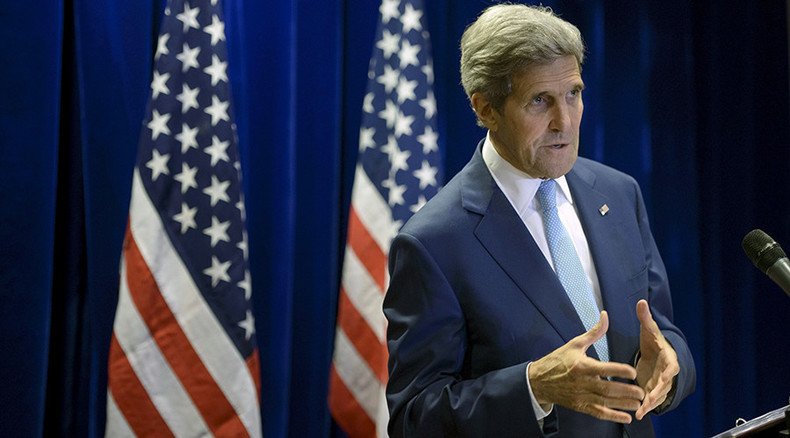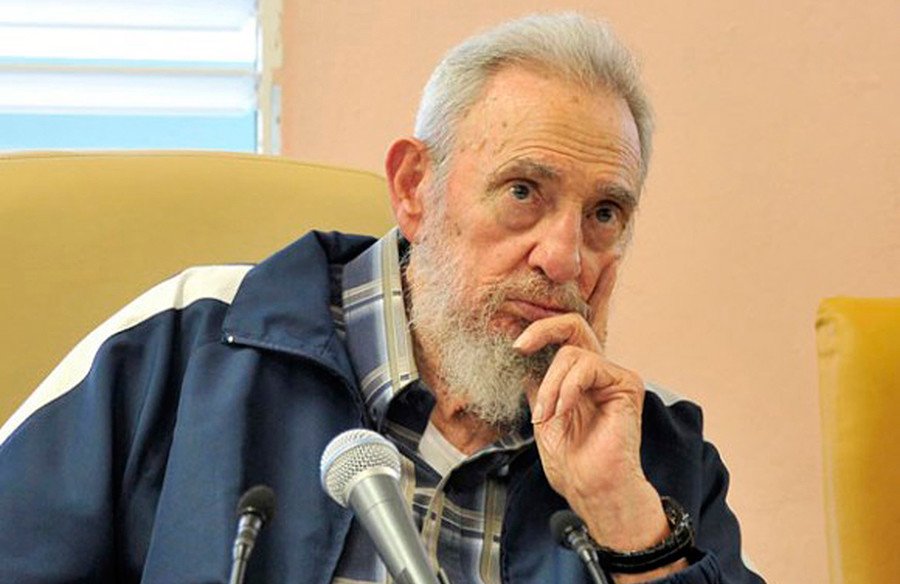Mr. Kerry goes to Havana: Time to light the cigars?

John Kerry’s visit to Cuba this Friday is the first time a US Secretary of State has visited the Caribbean island in an official capacity since 1945. So is it time to light the Cohibas and celebrate the ending of a decades-long international feud?
Kerry is in Cuba for the official ceremonial flag-raising at the US Embassy in Havana- a symbolic moment in the new rapprochement between the two countries, which began December 17 last year. But perhaps it’s too early to celebrate since there are still some important issues to resolve.
First, there is the financial compensation which both sides feel they are owed. Big American corporations had their assets seized when Fidel Castro nationalized his country’s economy in 1959. As the Financial Times has reported, US law states that “the satisfactory resolution of property claims by a Cuban government ... remains an essential condition for the full resumption of economic and diplomatic relationships between the United States and Cuba.”
Estimates put the current figure of compensation at around $7 billion.
For its part, Cuba is also demanding compensation from the US for the economic harm its 54-year blockade of the island has caused. “Cuba is owed compensation equivalent to damages, which have reached many millions of dollars, as our country has denounced throughout our interventions in the United Nations, with irrefutable arguments and facts," Fidel Castro, leader of the Cuban revolution, wrote on Thursday.
It was reported this week that Cuba is claiming damages of $100 billion from the US. Can we really expect Uncle Sam to cough that up - or even a significant part of it?
READ MORE: ‘US owes millions of dollars to Cuba as compensation for years of embargo’ – Fidel Castro
Then there’s the issue of Guantanamo Bay. Despite President Obama’s promises to close it, the US detention camp, situated on the southeastern coast of Cuba, remains open. Cuba wants it to close and the land - which is regards to have been occupied illegally - to be handed back. In January, Cuba’s leader Raul Castro warned that unless Guantanamo was handed back to Cuba "diplomatic rapprochement wouldn’t make any sense.”
As is the case with the Iranian nuclear deal, hawks in the US aren’t too happy over Obama’s shift in policy toward Cuba, and this is another major obstacle to solutions being found to the issues outlined above.
Senator Marco Rubio, one of the leading contenders for the Republican presidential nomination has pledged to “absolutely” reverse the steps Obama has taken toward Cuba.
Republican Jeb Bush, another presidential hopeful, has also lambasted Obama’s policy towards Cuba, saying it “undermines America’s credibility and undermines the quest for a free and democratic Cuba.”
If Obama does want to officially lift the trade embargo on Cuba, then he faces a very hard task to get such a measure past a Republican-controlled Congress. “The support to keep pressure on the Castro regime is stronger now than it has ever been in Congress,” Republican Mario Diaz-Balart warned in July.
Only in June, the US Committee on Appropriations approved $30m of funding for “programs to promote democracy and strengthen civil society in Cuba, of which not less than $8 million shall be for the NED (National Endowment for Democracy).” At the same time, the Committee did not approve funding for the opening of the US Embassy in Havana, which Obama wants.
Human rights issues are cited by Obama’s opponents as a reason not to move away from a hardline approach. The fact that no political “dissidents” have been invited to Friday’s events has been attacked.
“Cuban dissidents are the legitimate representatives of the Cuban people and it is they who deserve America’s red carpet treatment, not Castro regime officials,” said Marco Rubio. While the reported arrest of 90 anti-government activists wearing Obama masks at the weekend has also been cited as evidence that the president’s “appeasement” of Havana is making the Cuban authorities bolder in clamping down on dissent - even though 38 anti-government activists were released from jail earlier this year - as part of the US deal.
But of course the US’s opposition the Cuban government has never been about human rights or the treatment of dissidents. If this were the issue, then the US would be sanctioning the likes of Jordan - whose human rights record is detailed here. Instead, the country is a strong US ally.
Cuba has been sanctioned for first and foremost for having a government US did not approve of. What we are seeing now, as in Iran, is differences within the US power elite in how to deal with countries that don’t toe the line.
Obama takes the view that after 54 years the blockade of Cuba clearly hasn’t worked - in the sense that the Communists are still in power.

So it’s time for a change.
“In Cuba, we are ending a policy that was long past its expiration date. When what you’re doing doesn’t work for fifty years, it’s time to try something new,” he said in January.
At the core of the Obama approach is the belief that the best way to restore US influence over the island is engagement. US capital will move in - and the country will, in time, become a de facto American economic colony as it was before. A newly opened US Embassy in Havana would be able to do more to promote the opposition cause in Cuba, than the US backing dissidents from abroad.
The hawks though don’t believe this policy will work. The Communists - even after the Castro brothers have departed from the scene - will be too wily to allow their country to become a US economic colony again. Cuba must be kept in the sin bin until it changes course.
But while the tactics of Obama and the hawks differ it's naive not to think that the objective remains the same. To once again have a government in Havana doing what the US wants.
Obama’s rapprochement with Cuba serves quite a few purposes: it improves his progressive credentials at home and abroad, it gives him the kudos of a “historic diplomatic breakthrough” and, we should also remember, the new diplomatic moves on Cuba were announced at the time that the US was ramping up sanctions on Russia. What better way to increase the pressure on Moscow than by making friendly overtures to one of Russia’s strongest allies?
For its part, Cuba does need the damaging US economic blockade of the island - which has been condemned by the UN General Assembly 23 years in a row and only supported by the US and Israel - to come to an end as soon as possible. It’s understandable therefore, given the hardships the Cuban people have faced, why Obama’s diplomatic offensive has been welcomed on the island. But at the same time, there are reasons for Cubans to be cautious about the new, friendlier approach from Uncle Sam. The old saying that leopards can’t change their spots, needs to be borne in mind. The old imperial power has not become a benign, sovereignty-respecter overnight.
We must not forget that while Washington has been courting Cuba, it’s been tightening the economic noose round socialist Venezuela, with Obama’s executive order ludicrously claiming that the situation in the Bolivarian Republic posed an "unusual and extraordinary threat to the national security and foreign policy of the United States."
So, if we are to light up a cigar over Kerry’s historic visit to Havana, then let’s make it a small one - and leave the Esplendidos till later.
The statements, views and opinions expressed in this column are solely those of the author and do not necessarily represent those of RT.
The statements, views and opinions expressed in this column are solely those of the author and do not necessarily represent those of RT.













